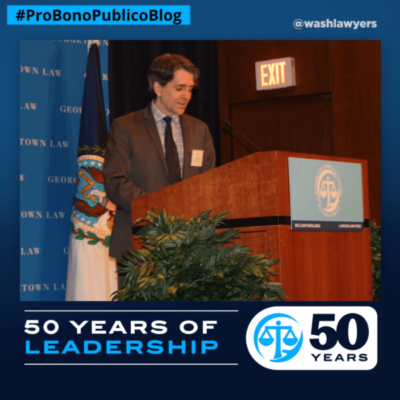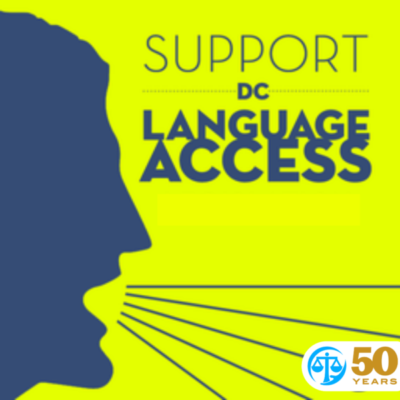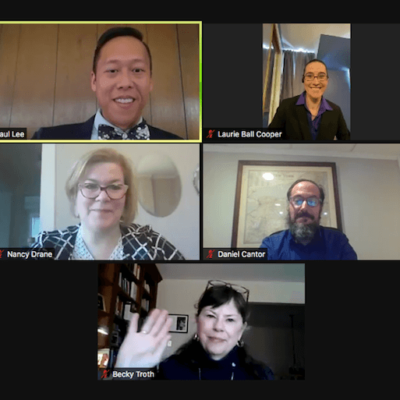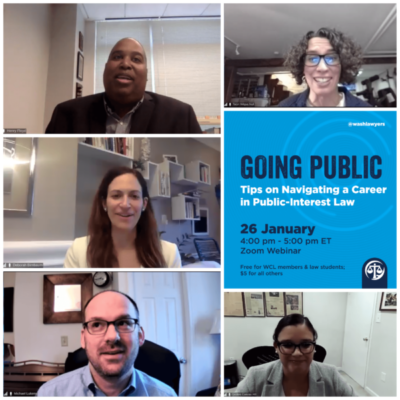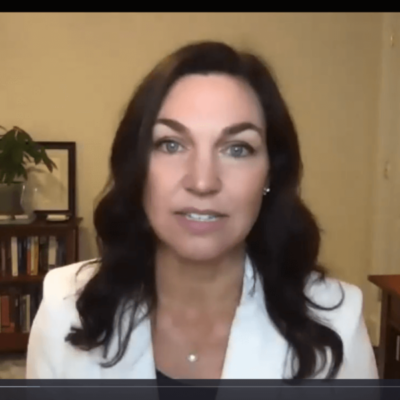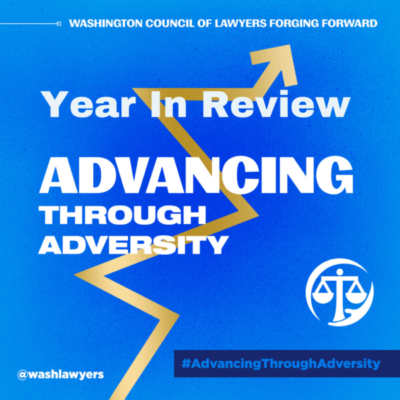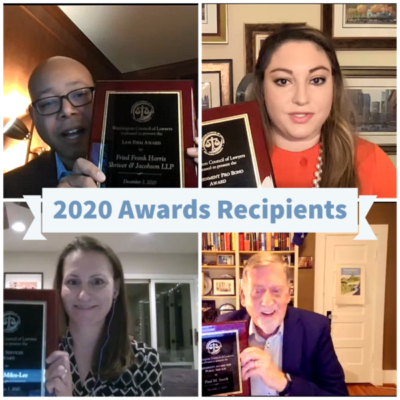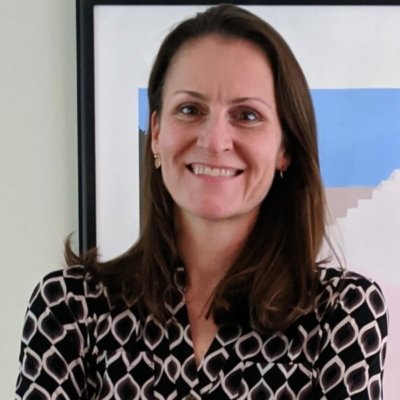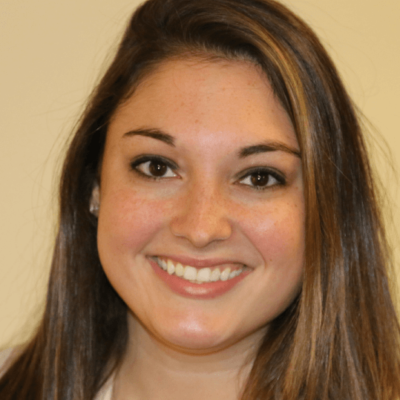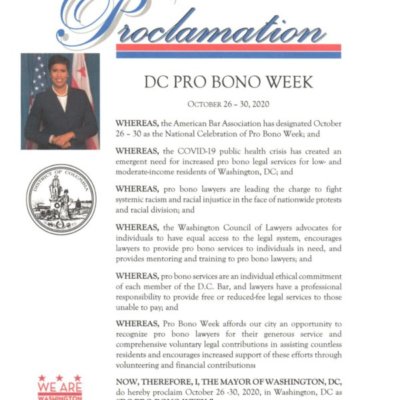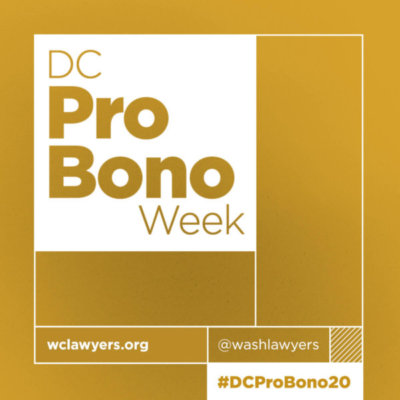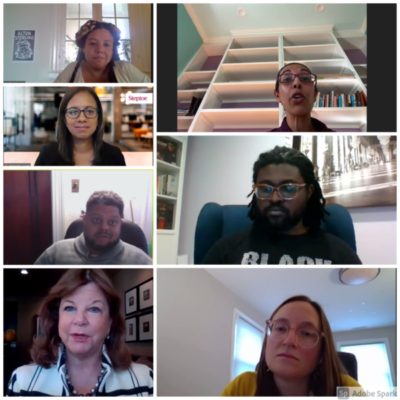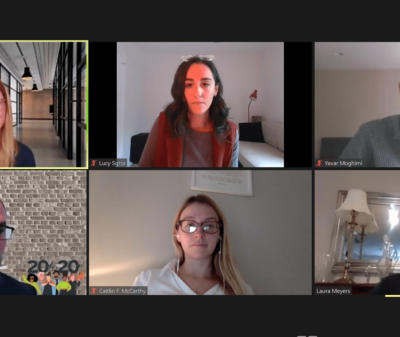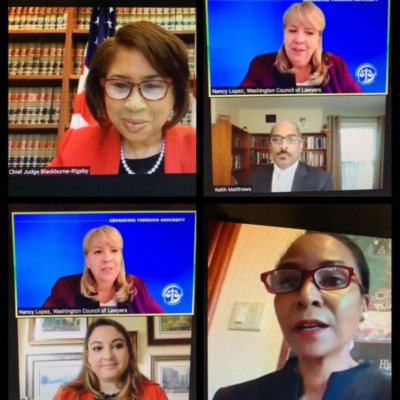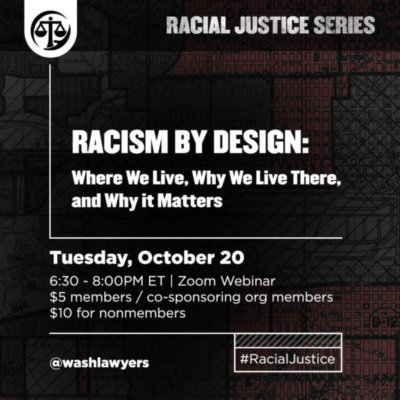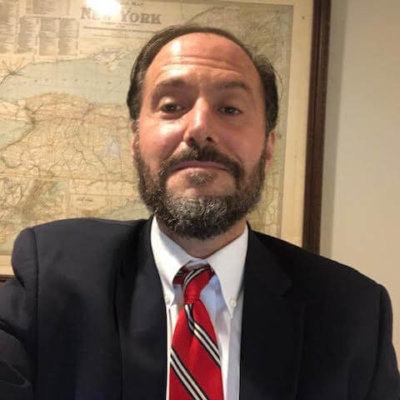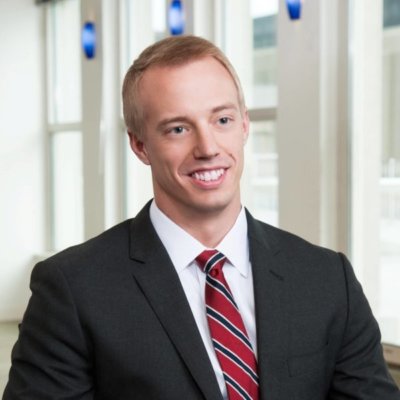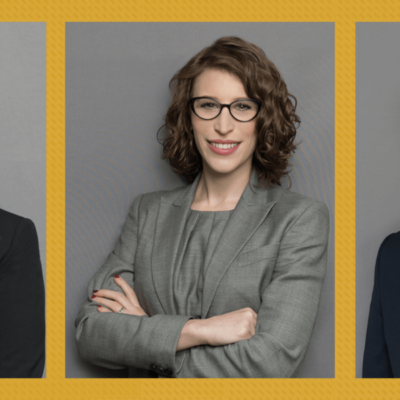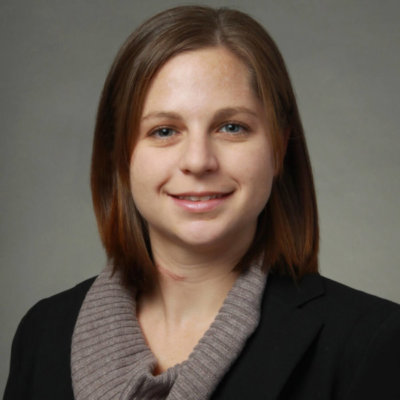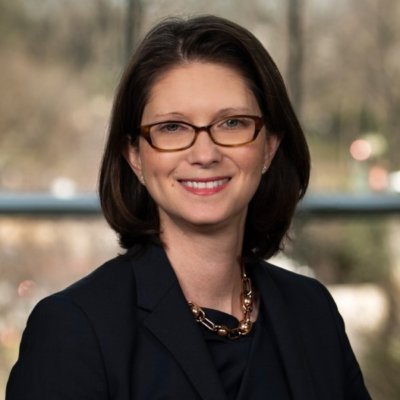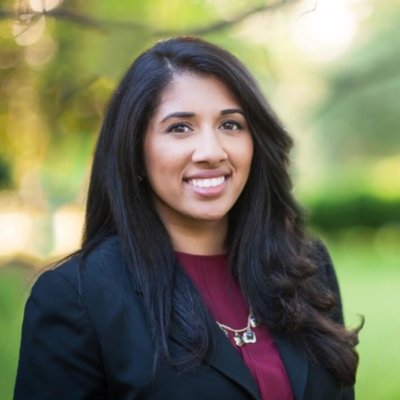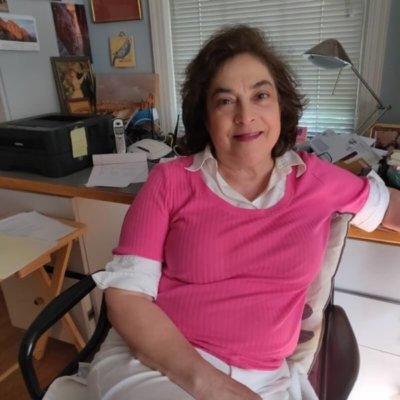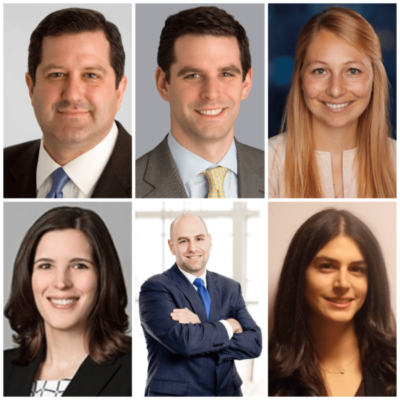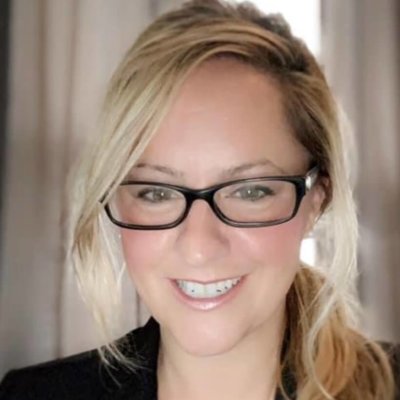Language Access Program of the DC Office of Human Rights Releases 2019 Compliance Review
Best Practices in Pro Bono: Beyond Trump, What Now?
Going Public: Tips on Navigating a Career in Public Interest Law
Spotlight On Evictions with Emily Benfer
By Heather Krick On Wednesday, December 9, 2020, we hosted Spotlight on Evictions, a virtual conversation with Emily Benfer, Chair of the ABA's Covid-19 Taskforce on Evictions. First, the program opened with remarks from current ABA President Patricia Lee Refo. Tricia acknowledged that the United States is facing an unprecedented need for pro bono lawyering and reminded us that lawyers can help limit the number of evictions. She discussed the ABA's advocacy in Congress for a renewed moratorium on evictions. The draft stimulus bill, which Congress is set to pass shortly, includes an extension of the national eviction moratorium through January 2021. She also thanked the many lawyers who have taken on pro bono cases during the COVID-19 pandemic. Then, Taryn Wilgus Null, government attorney and member of the Washington Council of Lawyers Board of Directors, moderated a discussion with Emily about the eviction crisis, which already existed pre-pandemic and has only been exacerbated during the pandemic. The facts and context Emily provided are sobering. Before the novel coronavirus pandemic began, about 50% of the renter population (or 20.8 million families) were paying 30% of their income to rent. Seven evictions were filed every minute when the unemployment rate was at 4.7%. Racially discriminatory housing practices resulted in a lack of wealth accumulation among people of color who have approximately 1/12 of the wealth accumulation of their white counterparts. Emily highlighted the purpose and effect of eviction moratoriums. Currently, Washington, DC has a moratorium on evictions, but 31 states do not have strong protections in place. Earlier in the pandemic, in May, 43 states had protections in place against evictions. This is important because eviction filings spike within weeks after moratoriums end and protections cease. In some cities, filings rose 385%. The mere filing of an eviction case can lead to decreased housing stability. Regardless of the outcome of the case, the filing can lower credit scores, hinder loan eligibility, or create barriers to future employment. Connections Between Evictions and Health Inequity Emily then explained that the single greatest predictor of eviction is the presence of a child in the home. As a result, families are often the ones evicted from their homes. This can have negative consequences on health well into the future. She noted evictions are associated with health conditions in children such as emotional trauma, risk of chronic disease in adulthood, decreased life expectancy, setbacks in education, and food insecurity. Some conditions shown in women who are evicted include drug-use and related harms, pre-term pregnancy, and physical or sexual assault. She went on to demonstrate how evictions are also correlated with an increase in physical and mental health conditions, including higher mortality rates, higher blood pressure, respiratory conditions, sexually transmitted infections, depression, anxiety, mental health hospitalizations, and suicides. Additionally, evictions cause families to seek alternatives which include staying with relatives or friends. Emily elucidated how an increase in home size by just two people can double the exposure risk of respiratory infections like the novel coronavirus. An overcrowded residential environment also makes it difficult to adhere to CDC recommended COVID-19 protocols, such as increased hand washing, self-quarantining, wearing clean masks, sheltering in place, and social distancing. With a link between moratorium lifts and an increase in mortality rates, evictions frustrate efforts to slow the spread of the coronavirus. Effects are stronger in states with weaker moratoriums. Some experts estimate that between May and September of 2020, evictions led to an additional 430,000 preventable cases of COVID-19 and 10,700 preventable deaths. Emily further explained that people of color are much more likely to be affected by evictions and their accompanying health impacts. During this past summer, African American renters had low or slight confidence in their ability to pay the next month's rent compared to white renters who consistently had high confidence in their ability to make rent payments. Black and Hispanic adults are dying at the same rates as white people who are a decade or older than them. What can we do? Emily had several suggestions for how lawyers can get involved. We need to freeze the initiation stage of evictions and ensure that the freeze applies to all renters. We can increase access to counsel for tenants in eviction cases. Without counsel, winnable cases more frequently default in the landlord's favor. We can create diversion programs that include a right to counsel. While there are rent relief programs available, the demand is so high that the funds get depleted within one day and sometimes in hours. Programs with funds still available are setting the bar too high for those in need to access the funds. Two actions that lawyers can take are to 1) take a pro bono eviction case, and 2) advocate for better fair housing policies. Emily highlighted one tax attorney in Texas who was so moved by the situation that they started taking pro bono cases and prevented four thousand evictions alone. After the pandemic is over, the work will have just begun. Legal representation in housing court can make a huge difference. In 2019, approximately 84% of tenants represented by counsel remained in their homes, and default judgments dropped by 34%. Pro bono lawyers will be more important than ever in helping families maintain secure housing. Hope for the Future Hope in this dark moment comes from remembering that many lawyers have already taken on pro bono cases and are continuing…







